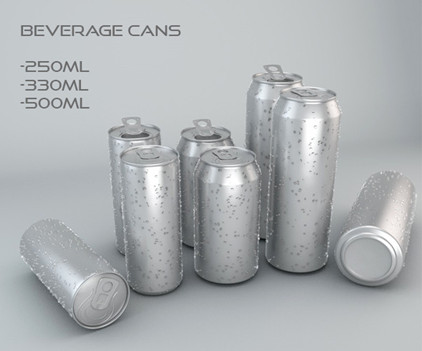According to the aluminum Association, U.S. aluminum smelting capacity is insufficient to meet the growing demand for the material.
Metal packaging makers are assessing the impact of tariffs on steel and aluminum imports announced by President Trump on Monday night. They have warned about a lack of metal production capacity in the United States, anticipating higher costs for both the packaging industry and consumers.
Trump signed executive orders reinstating the 25% steel tariff he had imposed in 2018 under Section 232 and increasing the previously enacted 10% aluminum tariff to 25%. The White House said the US steel and aluminium industries had been “harmed by unfair trade practices and global overcapacity”.
U.S. -based steelmakers broadly supported the new tariffs, a sign that they are struggling to compete in a market where imported goods are cheaper. But the tariffs have not been welcomed by everyone: Many industries that produce steel and aluminum products, such as food and beverage cans, have noted that the tariffs have raised their costs.
“The new tariffs will raise the cost of the tin sheet used to make food cans,” Robert Budway, president of the Can Manufacturers Institute, said in an interview Tuesday. “Those costs are passed on to food producers, they pass it on to retailers, and retailers pass it on to consumers. So consumer prices are going to go up and the tariffs are inflation for us.”
The impact of the US tariffs on Chinese aluminum materials on the aluminum can packaging industry is multifaceted, but there is still a breakthrough path through strategic adjustment and technological innovation
In the future, we will
Develop emerging markets: focus on Southeast Asia (such as Vietnam, Indonesia), the Middle East (such as Saudi Arabia) and Africa (such as South Africa) and other fast-growing markets to meet the needs of local beverage and beer industries.
Deepen the Belt and Road Initiative: Use policy support to expand markets in countries along the Belt and Road and reduce dependence on the United States.
Upgrading of domestic demand: Aiming at the upgrading trend of Chinese consumption, we developed high-end customized aluminum cans (such as craft beer and energy drink packaging) to enhance the added value.
At present, the factories cooperating with us have arranged to invest in the construction of aluminum can factories in Thailand, so as to avoid tariffs. In the future, we will also arrange overseas and strive for fair trade environment by combining policy tools. We believe that Chinese aluminum can enterprises are fully capable of globalization strategy and industrial upgrading.
provide targeted relief after Trump imposed preliminary tariffs on goods from Canada, Mexico and China last week, as well as retaliatory tariffs from those countries. The group said overly broad measures negatively impact U.S. canned food industry participants as well as U.S. consumers, and put U.S. food safety at risk.
“Over the past seven years, domestic production of tin-mill steel, which is used to make the canned fruits, vegetables, and other basic food products that Americans consume every day, has plummeted. Today, 70% of the tin steel needed to produce canned products is imported. President Trump should remove all tariffs on tin steel to support American farmers, food producers, and consumers.”
CMI issued a related statement noting that the Section 232 tariffs in Trump’s first term ended up having the opposite effect to what they were intended to do. It said tin mill steel producers in the United States shut down nine tin mill lines. Only three production lines, representing 1% of domestic steel production, are still operating in the U.S., CMI said.
In addition, as consumers – especially those using food assistance programs like SNAP – face tariffs-driven price increases for U.S. goods, they may seek value by opting for cheaper imports, such as those from China, Budway said Tuesday. “They inflate the dollar by buying cheaper imported canned food, which goes against the whole purpose of the tariff,” he said.
The group urged Mr. Trump to impose a tax exemption on imported tin steel.
Despite opposing Monday’s tariffs, CMI still supports the Section 301 tariffs that Biden imposed last year. The measures raise tariffs to 25 percent on certain steel and aluminum products imported from China, such as cans or cans.
Other packaging groups, such as the Flexible packaging Association, reported Monday that they were reviewing the new tariff information.
Post time: Feb-13-2025







